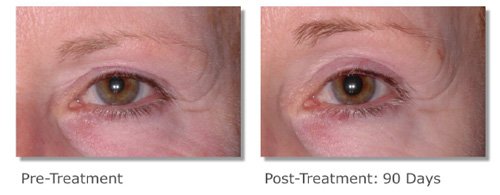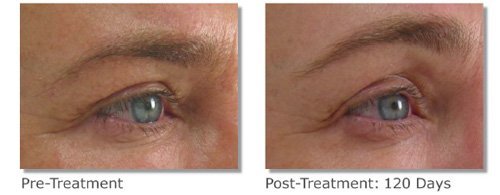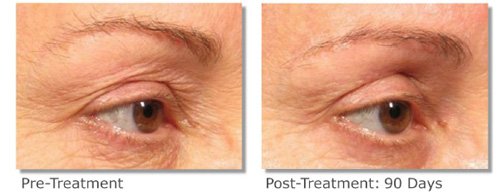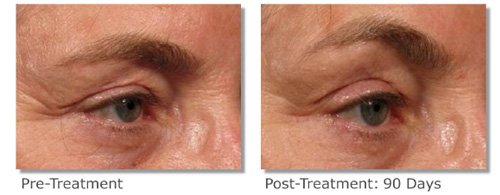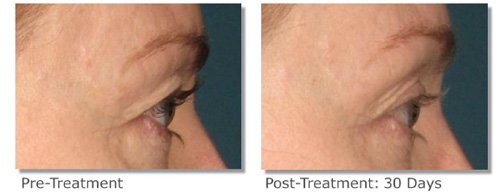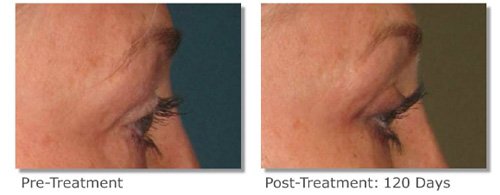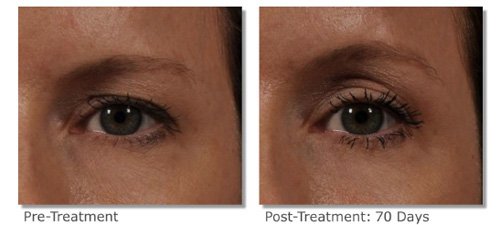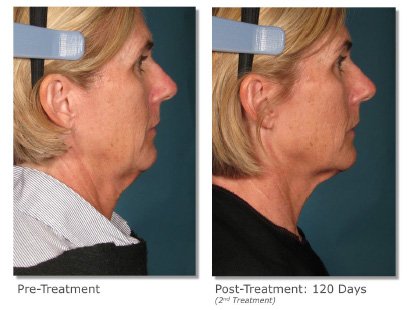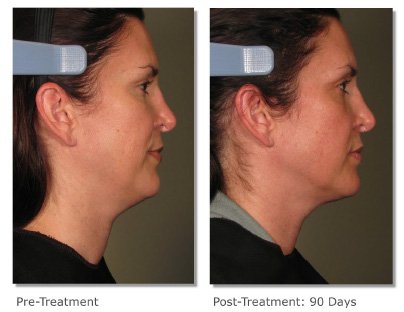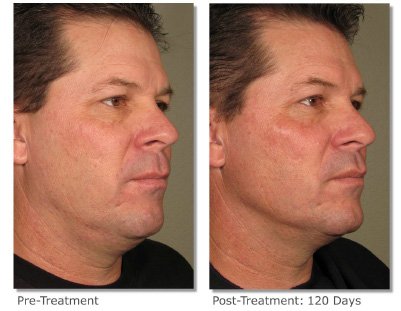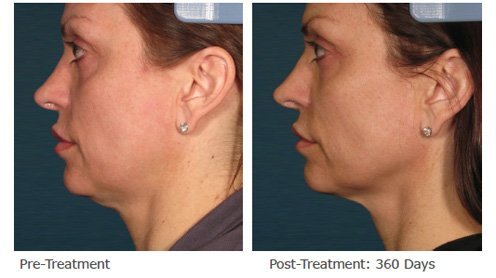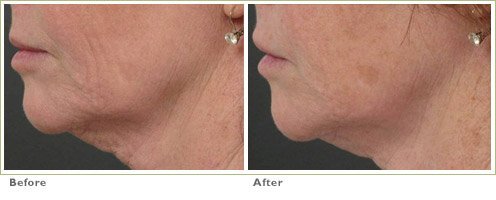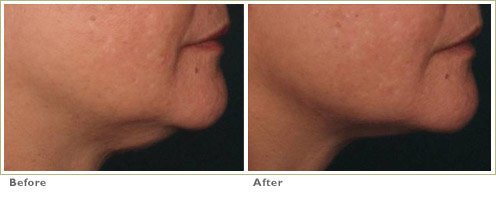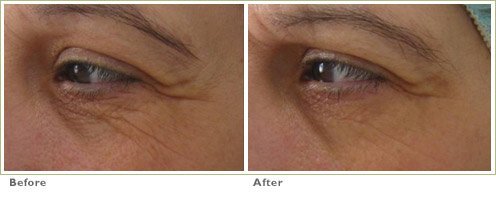Ultherapy Laser Treatment for Wrinkles
Ultherapy® – Uplifting Ultrasound!
We are proud to offer the acclaimed non-surgical lifting procedure, Ulthera. Not a facelift but an uplift— Ultherapy uses ultrasound technology to gradually strengthen and tone your skin from deep within.
The result? Tighter, firmer, better-fitting skin! Natural. No downtime. Noticeable results!
Ulthera is available in all of our offices.
What is Ultherapy?
Ultherapy is a nonsurgical face and neck treatment that uses ultrasound to actually lift and tone loose skin without any downtime.
What is unique about this procedure?
Ultherapy is the only treatment that can specifically target the deep foundation below the skin that is addressed in cosmetic surgery without cutting or disrupting the surface of the skin. It is also the only procedure to use ultrasound imaging, which allows us to actually see the layers of tissue we target during treatment and ensure the energy is delivered precisely to where it will be most effective.
What problem areas does Ultherapy target? What kind of results do you get?
Ultherapy addresses skin that is mild to moderately loose or lax. Specifically, by reconditioning and renewing the skin from within, Ultherapy will lift the brow, which in turn reduces excess skin on the lids, opens up the eyes, and gives a more refreshed look overall.
Patients have reported firmer, more toned skin in others areas of the face and neck as well.
What does collagen do? How does Ultherapy stimulate the creation of collagen?
Collagen is a natural protein that gives skin its youthfulness by keeping it firmed and toned. As we age, collagen loses its strength and its ability to stand up to the effects of gravity that pull the skin downward.
Ultherapy jumpstarts a repair process that strengthens your existing collagen and produces fresh, new collagen.
How long does the treatment take?
A full face-and-neck treatment takes 45-60 minutes, and a partial face treatment can take around 30-minutes—neither with any downtime
How long until I see results?
Patients may enjoy some initial effect but the ultimate lifting and toning will take place over 2-3 months, as tired collagen is renewed and replaced with new, stronger collagen. As this collagen-building process continues, further improvements can appear up to 6 months following a procedure.
How long do results last?
Patients treated with Ultherapy still have fresh young collagen after a year’s time following the procedure, but skin continues to age. Yearly touch-up treatments can help keep pace with the aging process.
Will I need more than one treatment?
The majority of patients only need one treatment; however, some may benefit from more than one treatment (depending on how much laxity they have and their body’s own biological response to the ultrasound and collagen rebuilding process).
Is there any downtime?
With Ultherapy, there is no downtime. You are able to return to your normal activities right away, and there are no special measures you need to take.
*Schedule a complimentary consultation online or in-person.
Who is a good candidate for Ultherapy?
A good candidate for Ultherapy is someone with skin that has “relaxed” to the point of looking, and often feeling, less firm. A lowered brow line or sagging skin on the eyelids, for instance, is often the first sign of “maturing” skin. Typically, those in their thirties and older who have mild to moderate skin laxity are candidates.
While Ultherapy is not a replacement for surgery, there are many people who want some lifting but are not ready for surgery, either mentally, financially or logistically.
There are also younger people who want to “stay ahead of the game” as well as those looking to prolong the effects of cosmetic surgery.
What kind of technology does Ultherapy use?
Ultherapy uses tried-and-true ultrasound technology, which has received FDA clearance for use in this new type of medical procedure.
What does the ultrasound therapy do?
Ultherapy delivers heat below the surface of the skin to stimulate the body’s natural renewal of existing collagen and creation of new collagen. This results in a toning and actual lift of the skin over time.
*Schedule a complimentary consultation online or in-person.
Is Ultherapy safe?
The procedure has been cleared by the FDA after demonstrating safety in clinical studies, and tens of thousands of treatments have been performed worldwide without any significant adverse events. In addition, ultrasound energy has a proven track record, with use in the field of medicine for more than 50 years.
Are there any side effects?
There may be slight redness for up to an hour or so following the treatment, and a small percentage of patients may have slight swelling, tingling or tenderness to touch, but these are mild and temporary in nature.
There is always the possibility for other less common post-procedural effects, which your practitioner will review with you.
Our Locations In Northern California
Ultherapy is available at all our locations.
We serve the entire bay area including Los Altos, Menlo Park, Atherton, Mountain View, San Jose, Campbell, Santa Clara, Sunnyvale, Redwood City, Mountain View, San Mateo, Burlingame, San Francisco, Walnut Creek, Concord, Pleasant Hill, San Ramon, Pleasanton, Fremont, and all of the surrounding areas.
Will I feel the ultrasound during the treatment?
Yes. What you are feeling during the treatment is actually tiny amounts of concentrated ultrasound energy being deposited below the surface of the skin.
What does it feel like?
Patients have noted there can be some discomfort while the energy is being delivered, but it is temporary and a positive signal that the collagen-building process has been initiated.
Can Ultherapy replace a face lift?
Ultherapy is an “uplift” not a “facelift.” While it is not a replacement for surgery, it is a viable option for those not ready for a facelift or those looking to prolong the effects of cosmetic surgery.
Is Ultherapy surgery?
No. Ultherapy addresses the skin and the support layer below it, but it doesn’t entail cutting or disrupting the surface of the skin.
How is Ultherapy different from lasers?
Lasers typically address issues in the superficial layers of the skin (e.g. fine lines, wrinkles, pigment changes). Ultherapy addresses the deep skin layer and the foundational layer addressed in cosmetic surgery that lift and lends support to the skin. Therefore, the two technologies are quite compatible!
Ultherapy Gallery
*Results may vary.




